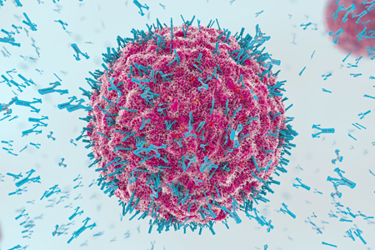Innovations In Hybridoma-Based Therapeutic Antibody Discovery Against Type 1 Transmembrane Proteins
By Vydehi Kanneganti, Nicole Polewaczyk, and Brian A. Zabel

Type I transmembrane proteins (T1Ps) play a critical role in sensing the cellular microenvironment and facilitating intercellular communication by functioning as signaling receptors or transmitters. Therapeutic antibodies targeting T1Ps have emerged as some of the most impactful and clinically successful biologics to date.
For example, OKT3, which targets the T cell-expressed T1P CD3, became the first approved monoclonal antibody therapeutic in 1986 for preventing graft rejection. Blinatumomab, a bispecific T cell engager (BiTE) targeting both CD3 and CD19, was approved in 2014 for leukemia treatment, while the same year saw the approval of immune checkpoint inhibitors Nivolumab and Pembrolizumab, which target T1P PD-1 and are now used in the treatment of various cancers.
As the field advances, the discovery of next-generation monoclonal antibodies against T1Ps requires a reliable, high-performing workflow. Here, we present a hybridoma-based antibody discovery and humanization strategy using PentaMice® immunization, designed to generate high-affinity monoclonal antibodies with picomolar binding potency and cross-reactivity across human, pig, and cynomolgus monkey — ideal for preclinical development of T1P-targeting therapeutics.
Get unlimited access to:
Enter your credentials below to log in. Not yet a member of Bioprocess Online? Subscribe today.
